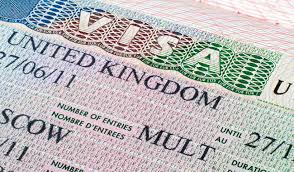Over 10,000 Nigerians working in the United Kingdom under the Skilled Worker visa scheme could face deportation as the British government slashes the list of eligible job roles.
The new regulation, which took effect on July 22, 2025, is part of Westminster’s broader push to curb net migration. It tightens the requirements for the Certificate of Sponsorship (CoS) and Skilled Worker visas, removing 121 occupations from eligibility for foreign sponsorship.
Under the revised policy, only jobs that meet RQF Level 6, equivalent to a bachelor’s degree, now qualify. Previously, mid-skill positions at RQF Levels 3–5 were acceptable. This change effectively shuts the door on thousands of lower and mid-skilled roles, leaving only high-skilled positions open to overseas workers.
Industries set to be hardest hit include hospitality, agriculture, creative arts, health associate roles, childcare, trades, and administrative support, sectors that have historically depended on migrant workers, many from Nigeria.
Defending the move, UK Home Secretary Yvette Cooper said it was vital to protect local employment. “These new rules mean stronger controls to bring migration down and help us invest in domestic training,” she said.
The scrapped occupations cover a wide range, including managers in agriculture, forestry, hospitality, and logistics; health and welfare staff such as youth workers, counsellors, and pharmacy technicians; creative professionals like dancers, authors, actors, translators, and designers; as well as public service roles including police officers, firefighters, and prison staff.
Skilled Worker visa holders currently employed in these positions face an uncertain future. Once their current contracts expire, many may be unable to renew or switch roles unless they meet the new, stricter requirements.
Employers are now being urged to prioritise local recruitment or significantly increase salaries. The minimum salary threshold for most roles has risen sharply to £41,700. Although the threshold for health and care workers remains at £25,600, this only applies after deductions for accommodation and transport.
Entry-level roles in IT and customer service, once a common route for many Nigerian migrants, have also been hit by the crackdown, no longer qualifying unless employers can meet the higher pay and skill criteria.
The policy shift comes amid mounting political pressure to reduce immigration numbers. For Nigerians already in Britain and thousands more hoping to migrate, the path has just become considerably steeper.


